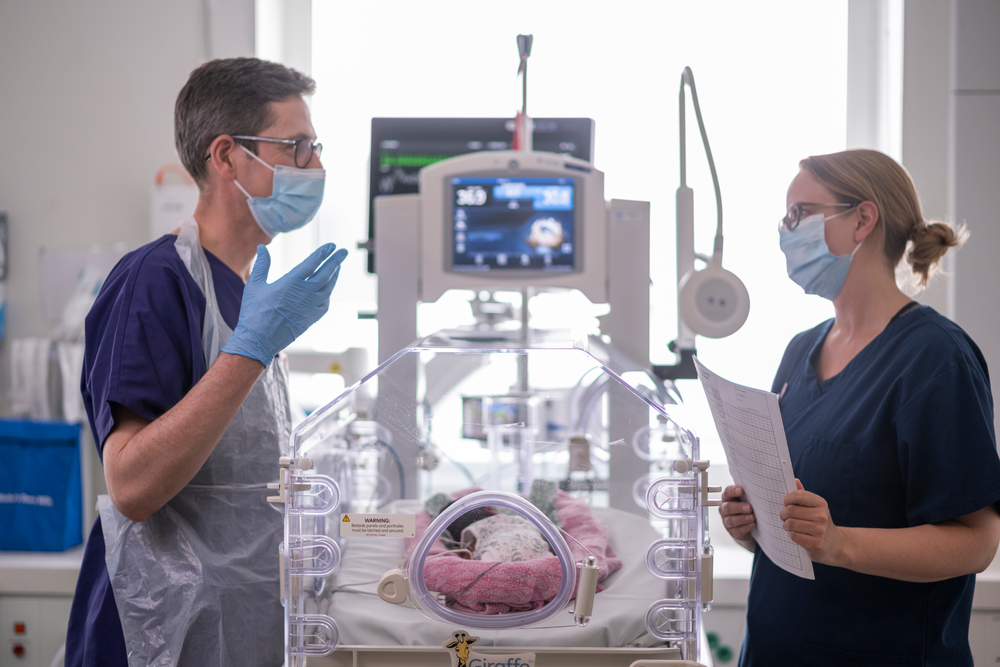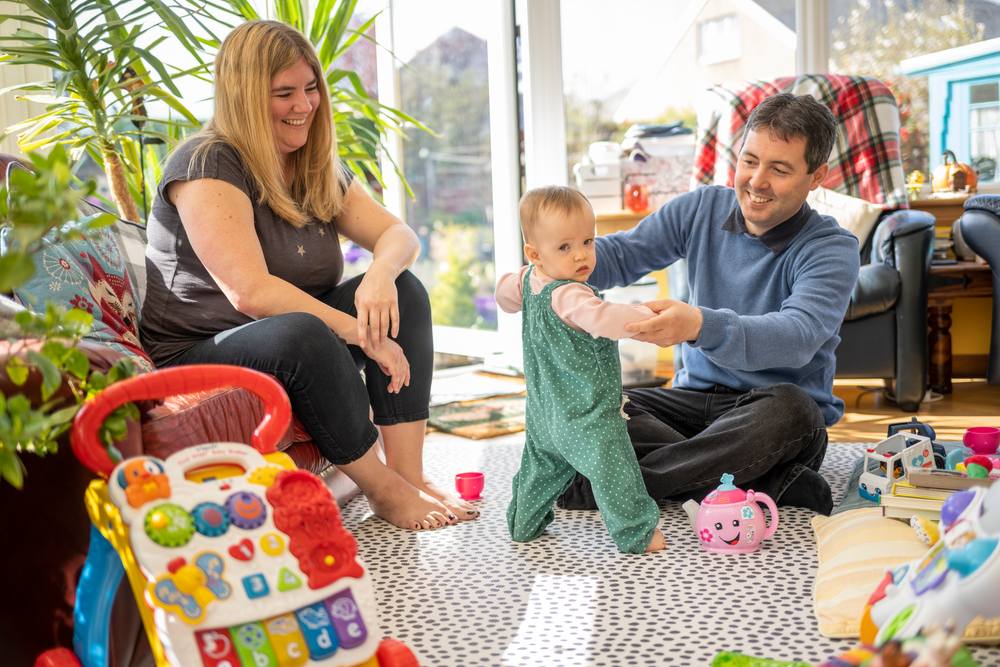Laboratory’s work helps premature babies survive and thrive

To mark Baby Loss Awareness Week in the UK, we look at the pioneering role of the Jennifer Brown Research Laboratory and the Theirworld Edinburgh Birth Cohort.
Bereaved parents and families will unite this week to commemorate the lives of babies lost during pregnancy, at birth and in infancy.
Baby Loss Awareness Week has been marked in the United Kingdom for 21 years, while Pregnancy and Infant Loss Remembrance Day is held on October 15 in the US, Canada, Australia, Ireland, the UK and other countries.
Being born too soon (before 37 weeks) or too small is a leading cause of baby loss in the UK and worldwide. It’s the reason attributed to more than half of the 2·4 million neonatal deaths globally in 2020. Of those babies, 73% were born prematurely. Another 1.9 million stillbirths per year are linked to being too small and vulnerable.
For almost two decades, Theirworld has been deeply involved in this field, through the Jennifer Brown Research Laboratory in Edinburgh. It was created in 2004 by Theirworld Chair Sarah Brown and husband Gordon in memory of their daughter Jennifer, who died 10 days after being born prematurely.
The laboratory works to improve understanding of why being born early is so harmful for some babies, how we can develop treatments to reduce those harms and how we can better help newborn babies in the first crucial hours and days after birth.
The work is headed by Professor James Boardman, the laboratory’s Scientific Director. He said: “Advances in neonatal intensive care mean it is possible to save some of the tiniest babies – those born as young as 22 weeks of pregnancy, weighing around one pound.
“But we still have a long way to go to improve survival rates and ensure that babies who face the challenge of preterm birth can thrive and participate.”
Of babies born at 22 weeks who receive intensive care, only 30% will survive – and around one-third of those will grow up with a disability such as cerebral palsy. Survival increases and disability decreases with each extra week spent in the womb.
Professor Boardman explained: “Being born too soon can alter brain development during a critical window in early life. Currently, there are no treatments to prevent these difficulties arising.
“Doctors and educators cannot reliably predict which children stand to benefit from early interventions and the best way to support affected children is uncertain.”
In 2015, the pioneering Theirworld Edinburgh Birth Cohort was launched at the Jennifer Brown Research Laboratory. This 25-year research programme tracks the development of 400 babies – both premature and full term – as they grow into adulthood, providing world-first insights into the long-term effects of early labour on the developing brain.

Lili Hughes, who is part of the Theirworld Edinburgh Birth Cohort, with her parents Delyth and Marc (Theirworld/Phil Wilkinson)
The cohort has led to remarkable discoveries including:
- Using state-of-the-art brain scans to see precisely how premature birth modifies brain connections.
- Family stress and socioeconomic deprivation can impact baby brain development, highlighting the importance of looking after whole families to promote the healthy development of premature children.
- Research on much oxygen should be given to a baby while in an incubator has helped doctors and nurses be better equipped to look after preterm babies.
Professor Boardman said: “These discoveries provide critical knowledge for designing and testing new ways of supporting premature babies and their families.
“We work with parents of premature babies and adults with lived experience of being born early to ensure our research questions are relevant to those we aim to help.
“Parents tell us they want this research, they want to share their data and give their time, and they want to help the next generation of premature babies.”